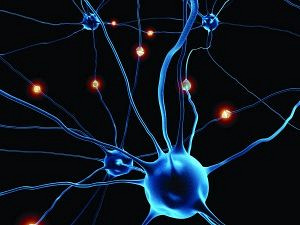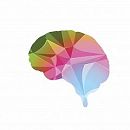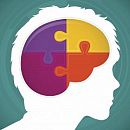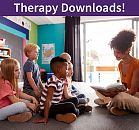Neurology And Neuroscience: Review And Update For Your Clinical Practice #e263
Presenter: Martha S. Burns, PhD, CCC-SLP
Learn basic neuroanatomy and neurophysiology as it relates to SLP practice.
– J.F., prior course participant
Read more comments about this course!
With the explosion in neuroscience now being applied to clinical populations like autism spectrum disorders, auditory processing disorders, motor speech disorders, language disorders in children and aphasia in adults, as well as neurocognitive disorders, knowledge of basic neuroanatomy and neurophysiology is essential.
This online course is for practicing clinicians who would like a quick review of neuroanatomy and overview of newer approaches to neurophysiology for better understanding of the new research applications to the world of the clinician.
This course covers basic components of the human nervous system with emphasis on the central nervous system and cerebrum as well as the physiology of neuronal connections. It then reviews neurodevelopment from the basics of prenatal development to the maturation of major fiber tracts and cortex.
Offered for 0.25 ASHA CEUs – 2.5 contact hours.
Course Overview – Run Time: 2:36:08
- Major anatomical components of the human central nervous system with application to acquired neurocognitive and neurodevelopmental disorders.
- Cerebral anatomy and organization.
- Connectomics and Network Theory.
- Applications to cognitive communication assessment and interventions.
- Brief review of neurodevelopment.
- Prenatal.
- Brain development: birth to adolescence – clinical applications.
– S.G., prior course participant
Read more comments about this course!
The content of this online CE course does not focus exclusively on any specific proprietary product or service. Presenter financial and non-financial disclosures may be found in the Presenter & Disclosures area.
Video PowerPoint presentation with author narration & downloadable handout. Stop and re-start the course at any point. Learners retain access to course content after completion for ongoing reference and review.
Reviews
"I work heavily with a variety of neurological patients and this was a good refresher for my overall knowledge of the brain and its functioning. I liked the amount of studies and references that were used to support the information being presented." M.V. (Jun. 2025)
"Review of brain anatomy and function was helpful. The course was organized well." S.W. (Mar. 2025)
"The information about identifying issues with rapid auditory processing using ABR and how one is able to identify disorders as early as 3-4. I work in early intervention and there is always a couple of kids per year that I encounter that I suspect have an auditory processing issue, but had previously learned that you couldn't test till 7 y.o." X.O. (Jan. 2025)
"The development of the brain was a beneficial discussion. I liked the ability to understand how the different sections of the brain operate but work as a collective." C.R. (Jan. 2025)
"Understanding that neuronal fiber tracts are still developing into and beyond adolescence." H.M. (Dec. 2024)
"New research via ABCD study is super interesting. Loved that the general/basic level reviews were quick and simple, while the more in depth reviews were more detailed and also clearly presented. Nice pacing of information too." R.F. (Dec. 2024)
"Review of brain development stages and basic neuroanatomy was beneficial. Also refresher of the homunculus. I enjoyed the visuals and 3D imagery to illustrate material and quick pace." L.G. (Dec. 2024)
"Neuroscience in relation to learning, communication, and literacy was beneficial. I most appreciated the information about the most current studies related to learning and the development of the adolescent brain." C.H. (Dec. 2024)
"The neuroscience implicating neurological behaviors was beneficial. I liked the information and research." N.H. (Nov. 2024)
"I particularly appreciated the concept of multiple neuronal fiber tracts (not just the AF) that connect speech-language centers and that damage to those tracts can present as damage to a language area. I knew that the brain was interconnected, so when I saw patients with clear language deficits but without specific damage to the exact language center per se, it made sense to me, but this course gave me a clearer and more scientific understanding of why that is." E.Z. (Nov. 2024)
"The detail- the presenter clearly knew her topic well. I also appreciated the in-depth and up-to-date nature. As a clinician who has been practicing in neuro ICU setting for 10 years, I find it difficult to find CEU courses that aren't surface or basic; this was anything but!" E.Z. (Nov. 2024)
"Lots of information was beneficial, especially the new neuroscience research. So much information and presented so well." M.M. (Nov. 2024)
"The newer research involving neural tracts was beneficial. I enjoyed the visuals." K.B. (Sep. 2024)
"Brain regions and their functions were a helpful discussion. I liked the visual cues." P.F. (Aug. 2024)
"How different tracts mature at different rates was beneficial to discuss. I enjoyed how it ties into the goals we work on as SLPs." M.K. (Jul. 2024)
"The entire course was really beneficial. I am very excited about the possibilities of additional neuroimaging to better help clients, and the holistic therapies that are emerging using sound therapy, emerging behavioral understanding to foster an easier process for clients to create changes in their brains, and, of course, our recent revisions and explorations of neuroplasticity across the lifespan." J.F. (Jul. 2024)
"This was an excellent blend of real-life clinical needs, basic to advanced neuroscience review, and a deep dive into neuroscience and its implications for speech therapy. I am fascinated with the way the speaker envisions new knowledge of the connectomes, too." J.F. (Jul. 2024)
"The information on the cerebrum and frontal lobe was beneficial. I liked the visuals and I like that I can go back and listen anytime, that I have continued access!" C.T. (Jul. 2024)
"I loved the real-life examples. The instructor related the concepts to real life and this really helped me maintain the information I learned." M.D. (May. 2024)
"A great refresher on neuroanatomy and neuroscience. I liked the discussion of the interconnections between hemispheres and lobes and how they impact language and speech." K.H. (Apr. 2024)
"Beneficial information regarding the layers of the brain and the difference between an SAH, SDH, and ICH as well as how this affects patients functions and severity. I liked the addition of visuals and diagrams." A.M. (Feb. 2024)
"All the neurophysiology in detail was helpful to discuss. I enjoyed the knowledge of the speaker." Z.R. (Jan. 2024)
"Discussing neuro pathways connecting the ‘geographical’ areas we have memorized for so long was beneficial. I liked the pictures, diagrams, and the latest research." J.W. (Jan. 2024)
"I work in a SNF, so the review of general neuroanatomy and physiology was very beneficial for me, especially the basal ganglia (the excitatory, inhibitory, and reward processing). The research over neural oscillations (theta especially) was also helpful. The images; very helpful for a visual learner." J.H. (Jan. 2024)
"Updated the neuroscience in clinical practice. Hard topic but didactic and good explanation." S.P. (Jan. 2024)
"The neuroanatomy review was great. I liked the content." L.M. (Jan. 2024)
"Information on Autism and Parkinson's was beneficial. I enjoyed the slides." R.P. (Jan. 2024)
"It was beneficial discussing brain development from conception to birth, then all the way through one's 20s. So much good information about how our brains are formed, how they work, and how they learn and mature." L.M. (Nov. 2023)
"Appreciated overall review of anatomy and physiology and current research." J.S. (Nov. 2023)
"I found the discussion on neurodevelopment to be of greatest interest to me, along with the information about research into ASD. I needed a refresher on neuroanatomy, as it has been 38 years since graduate school for me. The slides were well-presented." R.W. (Nov. 2023)
"I liked the depth of information provided. And the review of the various fibers/tracts and cortical regions and their responsibilities helpful in identifying deficits in my stroke patients." E.E. (Nov. 2023)
"Understanding how new research will help us to increase the efficiency and effectiveness of language therapy. I liked the review of the brain structures and current research." J.R. (Nov. 2023)
"I liked the information about gene development and ASD. The review of neuroanatomy and new research was very beneficial." P.R. (Nov. 2023)
"Good review of neural systems. This course also had good visuals." A.P. (Sep. 2023)
"The entire review of brain anatomy with all the updated research information was very rewarding in this course." S.S. (Aug. 2023)
"The areas of the brain related to language/phonology was a beneficial topic. I liked the review of all structures of the brain." M.B. (Aug. 2023)
"It was fantastic to have a review of the new literature after not being in graduate school for so long. Also, I really appreciated that the speaker was constantly pointing out how a presented topic of brain anatomy is relevant to an SLP." L.P. (Jul. 2023)
"The speaker was fantastic! She really elevated what could have been a dry topic and kept the entire lecture engaging." L.P. (Jul. 2023)
"Very needed updated information." D.F. (Jun. 2023)
"I enjoyed hearing about all the new research." S.C. (May 2023)
"It was very helpful that the information was tied to practical application for the SLP. Ensuring the patient's attention and engaging them in the activities is critical for positive outcomes. The overall refresher was helpful for me as I am a program leader for our brain injury and stroke programs. I was also interested in the updated research that is taking place at NIH and will be excited to see those results." S.L. (Mar. 2023)
"I liked the way Dr. Burns phrased how the stretching of axons resulting in a TBI affects cognitive-communicative inefficiency, and I will use this with our brain injury patients since many have negative scans and it is difficult to explain DAI to patients." S.L. (Mar. 2023)
"Great content - This area fascinates me. I liked the updated information - it's been a while since I have heard more recent information and research findings." M.B. (Mar. 2023)
"New research. I liked the depth of knowledge provided." M.S. (Mar. 2023)
"The connections to executive function and language were very interesting. The instructor was engaging and the material was very interesting." C.H. (Feb. 2023)
"The development of the prefrontal cortex and how it relates to students that have difficulty with executive function, making sound decisions, and problem-solving. I liked the refresher in anatomy." B.G. (Jan. 2023)
"New research on connectivity and learning. Update on existing knowledge." S.W. (Jan. 2023)
"I plan to apply this new information to speech and language treatment of my pediatric and adult patients." S.A. (Dec. 2022)
"I liked Martha's approach to teaching. Afforded the learner the ability to accomplish a comparative & contrast analyses of "Traditional" vs. "Contemporary" neurology, neuroscience and neurodevelopment required by SLPs for clinical competence." S.A. (Dec. 2022)
"Dementia and neuroscience. Very informative course." J.M. (Dec. 2022)
"New research regarding ASD. I liked review of all parts of the brain." E.G. (Dec. 2022)
"Learning brain function associated with networks and connectomes; neuroplasticity; oscillatory patterns. The images used for the PowerPoint depicted the information very well." J.L. (Dec. 2022)
"Learning correlation between brain tracts and therapy approaches. I liked the use of examples to illustrate difficult concepts." K.F. (Dec. 2022)
"I liked the ASD studies. Beneficial information overall." A.B. (Dec. 2022)
"Relevance to education. Charts were most helpful." P.A. (Dec. 2022)
"Clinical application. Great details and review." C.C. (Dec. 2022)
"I liked how Martha tied clinical research to how our treatment is shown to effect physical changes in the brains of our clients." S.J. (Nov. 2022)
"The applications of how learning changes the brain were good. I liked the discussion on brain herniation and all the new research. I liked Martha's energy and knowledge, and how she continues to keep us up to date." I.U. (Oct. 2022)
"I would recommend this course." S.S. (Oct. 2022)
"It was a very good reminder of the functions of the brain and how important each part is to helping a child learn to communicate." K.N. (Sept. 2022)
"The anatomy of areas important for executive function and regulation were beneficial." M.F. (Aug. 2022)
"This course covered a lot of information." K.B. (July 2022)
"What wasn't beneficial! This course was a much needed refresher. Not only did this course jog my memory but I learned so many new things. The visuals and graphics in the course are amazing. I wish we had those in grad school!" J.G. (June 2022)
"Clinical applications – the explanations with diagrams of different brain views were very helpful in understanding." K.S. (June 2022)
"Covered a broad range of topics in the area of neuroscience." L.L. (June 2022)
"Clinical application throughout the course. She was very thorough and the visuals really helped to connect her information." C.G. (June 2022)
"I appreciated the connections to the interventional aspects, and the depth of information." J.B. (May 2022)
"Discussion of fiber tracts, role of thalamus in language, and new clinical research was all good information. I also liked that I was able to go at my own pace." M.C. (May 2022)
"The relationship of the limbic system to functioning of memory and learning was interesting. Each major point was followed by clinical application for the knowledge." J.H. (Apr. 2022)
"Well organized and efficient coverage of extensive education." J.E. (Apr. 2022)
"I liked the discussion of implications in clinical practice – a very informative update on neurology." K.V. (Mar. 2022)
"I liked the updates on bilateral vs. coordinated whole brain functions. The graphics really help." K.L. (Feb. 2022)
"Liked the presenter's wealth of knowledge. I don't spend a lot of time studying or reading about neurology or neuroscience. It was challenging but stimulating to stretch my knowledge and Dr. Burns was the perfect expert to provide the challenge." S.G. (Jan. 2022)
"I liked the activities in session to promote dopamine and help with joy and memory." H.J. (Jan. 2022)
"I liked the connection between therapy and changes made in the brain. The speaker provided great examples!" S.G. (Jan. 2022)
Course Objectives
- Describe the major anatomical components of the human central nervous system that are relevant to or affected by neurodevelopmental disorders.
- Describe the major anatomical components of the human central nervous system that are relevant to or affected by stroke, brain injury or disease.
- Apply network theory research for recognizing and differentiating core components of cognitive and communication disturbances.
- Show parents and other professionals on the possible contribution of prenatal components of neurodevelopmental cognitive/communication disorders and the role of post-natal environmental/therapeutic factors that contribute to neuroplasticity.
- Apply neurodevelopmental research for consistency with maturational guidelines in therapeutic goal setting.
Presenter & Disclosures

Speaker Disclosures:
Financial — Martha Burns is a presenter of online CEU courses sponsored by Northern Speech; receives royalty payments.
Financial — Martha Burns is a paid consultant for Scientific Learning Corporation.
Nonfinancial — Martha Burns has no relevant nonfinancial relationships to disclose.
Intended Audience / Accreditation

This program is offered for 0.25 ASHA CEUs (Intermediate Level; Professional Area).

Intended Audience
- Speech-Language Pathologists
ASHA CEUs:
Northern Speech online courses are registered with ASHA and are offered for ASHA CEUs. The number of ASHA CEUs is noted above. Note that 0.1 ASHA CEU = 1 contact hour = equals 1 CEE.
Earning ASHA CEUs and the ASHA CE Registry:
To earn CEUs from this course and have ASHA CEUs submitted to the ASHA CE Registry, course participants must satisfy each of these requirements:
- Participants must meet the eligibility requirements to earn ASHA CEUs (see below).
- Participants must indicate – prior to course completion – their intent for Northern Speech to submit this course to ASHA.
- Participants must complete/view this course in its entirety.
- Participants must complete the course post test with a minimum of 80% accuracy.
- After successful completion of the post test and completion of the course evaluation, a certificate of course completion is presented to the participant electronically via PDF.
- For those participants who indicated their intent for the ASHA CE Registry, course completion status will be submitted by Northern Speech to ASHA within 45 days of the course completion date.
Eligibility To Earn ASHA CEUs:
Attendees must meet at least one of the following conditions in order to be eligible to earn ASHA CEUs:
- Current ASHA Member.
- ASHA Certificate of Clinical Competence (CCC) Holder.
- Licensed by a state or provincial regulatory agency to practice speech-language pathology (SLP) or audiology.
- Credentialed by a state regulatory agency to practice SLP or audiology.
- Credentialed by a national regulatory agency to practice SLP or audiology.
- Engaged in a Clinical Fellowship under the supervision of an individual with their ASHA CCC.
- Currently enrolled in a master's or doctoral program in SLP or audiology.
If an attendee is not an ASHA member or CCC holder but meets any of the above criteria, they may inform the ASHA CE Registry of their eligibility by visiting this site.
ASHA CE Registry:
During the enrollment process, if you select to receive ASHA credit for this course and if you provide your ASHA number, Northern Speech will automatically submit your CEU information to the ASHA CE Registry after successful course completion (80% on post test). This submission happens once per month, during the first week of the month. For example, if you complete your course on November 7th, Northern Speech will submit all November online course CEUs to ASHA during the first week of December. When ASHA inputs the information into their database, they will mark the course as completed on the last day of the month in which it was completed, so November 30th using this example. The certificate of completion available for you to print immediately, however, will reflect the actual completion date, November 7th in this example. Due to ASHA processing procedures please allow 2-3 weeks, from the submission date, for the course to appear on your ASHA transcript.
Licensing Boards: Most state licensing boards DO accept CEUs earned online (usually classified as home-study credits). Some state boards do, however, place a limit to the number of credits that can be earned via home study/online courses. For the most current information, we suggest that you contact your licensing board or agency to verify acceptance policies and/or any credit limits related to home-study courses prior to registering for this course.
Additional accrediting agencies by which Northern Speech is an approved CE provider:
- California: NSS is approved as a provider of continuing education by the California Speech-Language Pathology & Audiology Board. Provider #PDP4. Online CEU limits may apply; please contact SLPAHADB for current online CEU acceptance policies.
- Iowa: NSS is approved as a provider of continuing education by the Iowa Board of Speech Pathology and Audiology Examiners. Provider #169.
- Kansas: NSS is approved as a provider of continuing education by the Kansas Department of Health and Environment. Provider #LTS-S0005.
- Florida: NSS is approved as a provider of continuing education by the Florida Speech-Language Pathology and Audiology Board. Provider #SPA-026.
- New Jersey: NSS is approved as a provider of continuing education by the New Jersey Department of Education. Provider #1654.
Frequently Asked Questions
Customer Support: Please phone 888.337.3866 or email info@northernspeech.com.
Course Completion Timeframe:
You have unlimited time to complete our online courses. You may log off and log on as often as you’d like to in order to complete all sections of a course.
However, completion dates are based on Eastern Standard Time. Therefore, if you need your CEUs by a certain date, be sure to complete the course test before 11:59pm EST on that date. For example, if you need CEUs before January 1st, you will need to complete the course test before 11:59pm EST on December 31st.
Content Access:
Access to course materials and content does not expire, even after completing the post test. You may continue to review course material by logging into your NSS account, clicking the My Online Courses tab, and then viewing your desired course.
Certificate of Completion:
On successful completion of the post test (80%), a certificate will be immediately available for download and/or printing. This certificate will include your name, date of completion (based on Eastern Time Zone, USA/Canada), and number of contact hours (CEUs / CEEs). Please note that CEUs are awarded on the date of successful test completion, not the date of course enrollment. Please ensure that you successfully complete the post test prior to any licensure renewal dates.
ASHA CE Registry Submission:
During the enrollment process, if you select to receive ASHA credit for this course and if you provide your ASHA number, NSS will automatically submit your CEU information to the ASHA CE Registry after successful course completion (80% on post test). This submission happens once per month, during the first week of the month. For example, if you complete your course on November 7th, NSS will submit all November online course CEUs to ASHA during the first week of December. When ASHA inputs the information into their database, they will mark the course as completed on the last day of the month in which it was completed, so November 30th using this example. The certificate of completion available for you to print immediately, however, will reflect the actual completion date, November 7th in this example. Due to ASHA processing procedures please allow 2-3 weeks, from the submission date, for the course to appear on your ASHA transcript.
Purchase Orders:
Purchase orders are currently not accepted for online orders, if you wish to submit a purchase order please do so at info@northernspeech.com or fax to 888-696-9655.
What is an Online Course?
Our Online Courses consist of video, audio, and/or text content and are offered for ASHA CEUs. Unlike a webinar, which requires participants to be logged on and at a computer at specific times, our Online Courses are available to you at any time, from any device, via your NorthernSpeech.com online account. You may work at your own pace and start and stop your course as you wish. Your course will conclude with a short post test. On successful completion of the post test (>80%), a printable certificate of completion is presented to you.
Receiving CEUs:
Northern Speech is an ASHA CE Provider and our online courses are registered with ASHA and offered for ASHA CEUs. Please note that successful completion of the online post test is required prior to the awarding of CEUs. Please contact your state licensing board for acceptance policies related to CEUs earned online. Please note that courses offered for university students are not applicable for CEUs.
Registering for an online course:
You may browse all online courses by clicking the Continuing Education tab above, then Online Courses. Once you find a course, click Enroll Now, and you will be asked to either log into your existing Northern Speech account or create a new online account. Once you’ve entered your account information and provided your credit card payment, your course will be immediately available to you.
Accessing your purchased course or returning to a purchased course:
You will be able to access your online course by logging into your Northern Speech account and then clicking the My Online Courses tab on your profile screen. Click the course you would like to start or to resume. From there, proceed through the course sections until you are ready to complete the post test. You do not have to complete your course all at once. You may log on and off as you wish.
Testing requirements:
Each online course concludes with a post test consisting of multiple choice or true & false questions. Scores of 80% or greater are required for successful course completion and awarding of CEUs. You may revisit course materials and retest as needed to achieve a passing score.
Number of CEUs offered:
We offer courses from 1 to 21 contact hours. Each course will note the number of CEUs offered. Please note that 0.1 CEU = 1 contact hour = 1 CEE.
State licensing boards and online CEUs:
NSS is an ASHA CE Provider and most state licensing boards DO accept ASHA CEUs earned online (usually classified as home-study credits). Some boards do, however, place a limit to the number of CEUs that can be earned via home study/online courses. For the most current information, we suggest that you contact your licensing board or agency to verify acceptance policies and/or any CEU limits related to home-study courses prior to enrolling in an online course.
Course formats:
Our course formats include: text, audio, video, and PowerPoint with author narration. Each course will note the format on the course description page. Most courses include closed captioning.
Course handouts:
Most of our online courses provide a link to download the accompanying handout as a PDF file.
Group discounts:
Groups of 3 or more are eligible for a 20% discount on each registration on most of our online courses. To receive this discount, registrations need to be processed together via the "Group Rates" tab on the Online Course of your choice.
Computer requirements:
For our online courses to function best, we recommend that you update your computer to include the newest version of your Internet browser (Safari, Chrome, Firefox, Edge, Internet Explorer, etc.) and newest version of your computer's operating system. Also a high-speed Internet connection is recommended (cable or DSL). Speakers or headphones will be required for many of our courses as many contain audio components.
Course Cancellation Policy:
A purchased online course can be exchanged, refunded, or transferred to another individual if contact is made with NSS (via phone or email) within 30 days of purchase and the course materials have not been viewed or downloaded.
Special Needs:
Please click here for any special needs requests, and we will do our best to accommodate them.
| Contact Us |










